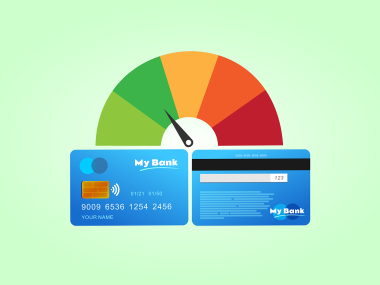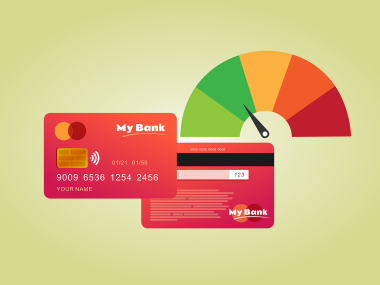How To Repair Bad Credit
Having bad credit can feel like a significant obstacle when it comes to achieving your financial goals. Whether you’re looking to take out a loan, purchase a home, or simply want a better interest rate on your credit card, the shadow of a poor credit score can loom large. Understanding the pathways to repair bad credit is crucial for not just financial health, but also for maintaining overall peace of mind.
This comprehensive post will explore effective strategies for turning your credit around and setting the stage for a healthier financial future.
What Are Some Common Causes Of Bad Credit?
When it comes to bad credit, a few common culprits typically lead to financial trouble. Recognizing these causes can help avoid future credit mishaps. Here’s a deeper look at some of the frequent triggers of credit score decline:
Late or missed payments are a primary cause of bad credit, signalling to lenders that you may be a risky borrower.
- High credit utilisation rates suggest that you’re reliant on credit, which can alarm potential creditors.Defaulted loans can lead to collections, charge-offs, or repossessions, leaving a long-lasting blemish on your credit history.Bankruptcies and foreclosures represent significant financial difficulties, inevitably impacting credit scores.
- Excessive credit applications within a short period of time can create multiple hard inquiries, reducing your score.
To illustrate this further:
- Late payments on credit cards or loan obligations should be avoided at all costs to maintain a good credit score.
- Keeping credit card balances low will prevent high credit utilisation, which can drop scores.
- It is crucial to address defaults promptly before they escalate into more significant issues like collections.
- Understanding the weight of bankruptcies and foreclosures on your score is essential to managing financial decisions.
- Spacing out credit applications can minimise the impact of hard inquiries on your credit score.
Creating a reliable financial habit now helps prevent these occurrences, preserving your credit score for future needs.
How Long Does It Typically Take To Repair Credit History?
The journey to repairing bad credit takes time and depends highly on individual financial situations. Some can expect a relatively quick turnaround, while others may need to brace for a longer credit rehabilitation period.
- Small credit issues, such as late payments, may only require a few months to rectify, provided that one adheres to positive credit habits.
- Significant credit problems, like bankruptcies, will linger on your report for up to a decade and demand more patience in repair.
- Regular, responsible acts like on-time payments can instantly reflect on your credit report, sometimes in as little as 30 days.
- Keeping a close eye on your credit report is essential to gauging the speed of your credit recovery.
Let’s consider some specifics:
- A single late payment might take around six months of responsible credit behaviour to overcome.
- Severe difficulties, such as bankruptcy, could remain on your credit history for 7–10 years.
- Modest, continual repairs often show results quickly and encourage further credit score improvement.
- Proactive credit report checks are crucial in addressing inaccuracies that could hinder credit repair progress.
Adopting a consistent credit-conscious routine can help accelerate the credit repair process, ultimately leading to a swifter recovery.
What Steps Can I Take Immediately To Start Repairing My Bad Credit?
Taking immediate action is vital when you’re on a mission to repair bad credit. By implementing the following steps, you can make tangible progress and begin to see improvements in your credit score:
- Obtain and review your credit report for any potential inaccuracies, and swiftly dispute any errors with the credit reporting agencies.
- Ensure you’re making timely debt payments, emphasising the importance of payment history in credit scoring.
- Aim to reduce existing debt, notably high credit card balances, to improve your credit utilisation ratio.
- Consider reaching out to creditors to set up payment plans or negotiate for better terms on outstanding debts.
- Avoid opening new credit lines or making unnecessary inquiries that might temporarily lower your score.
By taking actionable steps such as:
- Dispute credit report errors to maintain an accurate credit history.
- Paying bills on time will reinforce a positive credit history and show lenders your reliability.
- Paying down debts, especially on revolving accounts, to demonstrate responsible credit use.
- Negotiating with creditors where possible to clear up any old or outstanding debts.
- Limiting new credit inquiries to prevent frequent “hard pulls,” which might affect your score negatively,.
These initial steps play a significant part in laying the groundwork for a stronger credit profile.
Are There Any Reputable Credit Repair Services That Can Help Me Improve My Credit Score?
Yes, various reputable credit repair services can guide you in improving your credit score. When considering these services, it’s critical to do your due diligence:
- Research potential credit repair services for client testimonials and check with the Better Business Bureau for ratings.
- Services must adhere to the Credit Repair Organisations Act and provide clear contracts outlining their offerings.
- Steer clear of companies promising overnight credit fixes or those demanding upfront payment, as they’re likely scams.
- Self-help may be just as effective if equipped with the right knowledge and dedication to adhere to best credit practices.
Explore your options with consideration for:
- Identifying reputable credit repair services that can legally aid in disputing inaccuracies.
- Ensuring that any credit repair service you engage provides transparent agreements and follows legal protocols.
- Being alert to warning signs of unscrupulous credit repair scams.
- Remember that personal initiative and financial discipline are free alternatives to paid services.
- Choosing the right credit repair service can supplement your efforts but remember that personal accountability in managing credit is equally vital.
How Can I Monitor My Credit Score To Ensure My Credit Repair Efforts Are Effective?
Keeping an eye on your credit score is an essential aspect of any credit repair strategy, ensuring you can chart your progress and react swiftly to any changes.
- Utilize the free annual credit report access provided by the major credit bureaus to monitor your credit status.
- Consider additional credit monitoring services that offer real-time updates on your credit activities.
- Look into credit score tracking tools that many financial institutions and credit card issuers offer as part of their services.
- Assess the effectiveness of your credit repair strategies by closely observing the trends in your credit score over time.
To stay on track, you can:
- Utilise free reports from Experian, Equifax, and TransUnion for regular reviews.
- Take advantage of credit monitoring subscriptions for more frequent oversight.
- Use tools provided by banks or credit companies to get regular updates and credit score checks.
- Compare historical credit score data to discern improvements and tweak strategies for continued progress.
- Monitoring your credit ensures that you remain informed and capable of steering your credit repair path towards success.
Building a Solid Financial Foundation
Understanding the roots of bad credit and taking concerted steps to repair it are integral to reestablishing financial stability. Bad credit does not have to be a life sentence. With patience and consistent effort, you can slowly rebuild your credit score and regain confidence in your financial life.
Remember, repairing bad credit is a marathon, not a sprint. By following the guidance outlined above, you’re well on your way to a brighter financial future.






